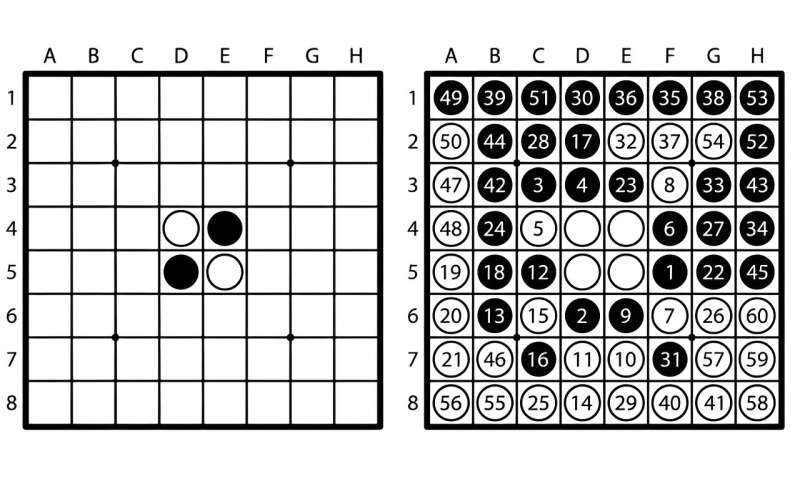Best of Last Week—synthetic chromosome, computerized Othello solved, alcohol and caffeine impact on sleeping

It was a good week for biological research as a team of geneticists in the U.K. completed construction of a synthetic chromosome—their work was part of an international project aimed at building the world's first synthetic yeast genome. Also, a team of environmentalists and coastal managers in China, working with a colleague from the University of Massachusetts, Amherst, found that zooplankton that live in both fresh and ocean water can chew apart microplastics, breaking them down into even smaller and potentially more dangerous nanoplastics. And a combined team of paleontologists from the University of Kansas, in the U.S., and the Institute of Vertebrate Paleontology and Paleoanthropology, in China, found fossil specimens that they believe tell the tale of the last primate to inhabit North America before the arrival of humans.
In technology news, Hiroki Takizawa, a computer scientist with Japanese computer company Preferred Networks, Inc., announced that he had "solved" the game of Othello, the 140-year-old board game. He computerized a game plan that he claims makes no mistakes between either player in a single game. And a small team of chemists at the University of Kansas created a tool that can accurately detect AI text when ChatGPT is told to write like a chemist. Also, a team at George Washington University working with the National Renewable Energy Laboratory found that when people buy electric vehicles, they drive them less than gasoline powered cars. And a team of engineers at the University of Southampton designed and built an energy efficient transmitter based on a CMOS chip and silicon photonics.
In other news, an international team of medical researchers found a positive association between Toxoplasma gondii, a cat-borne parasite, and frailty in older adults. Also, at team of researchers from DRI, Colorado State University, and the Missouri University of Science and Technology mapped the loss of groundwater storage around the world using advanced machine-learning techniques. And finally, a team of medical researchers from the University of Washington and the University of California were surprised to find that drinking both caffeine and alcohol tend to briefly cancel out the sleep-interfering effects of both.
© 2023 Science X Network